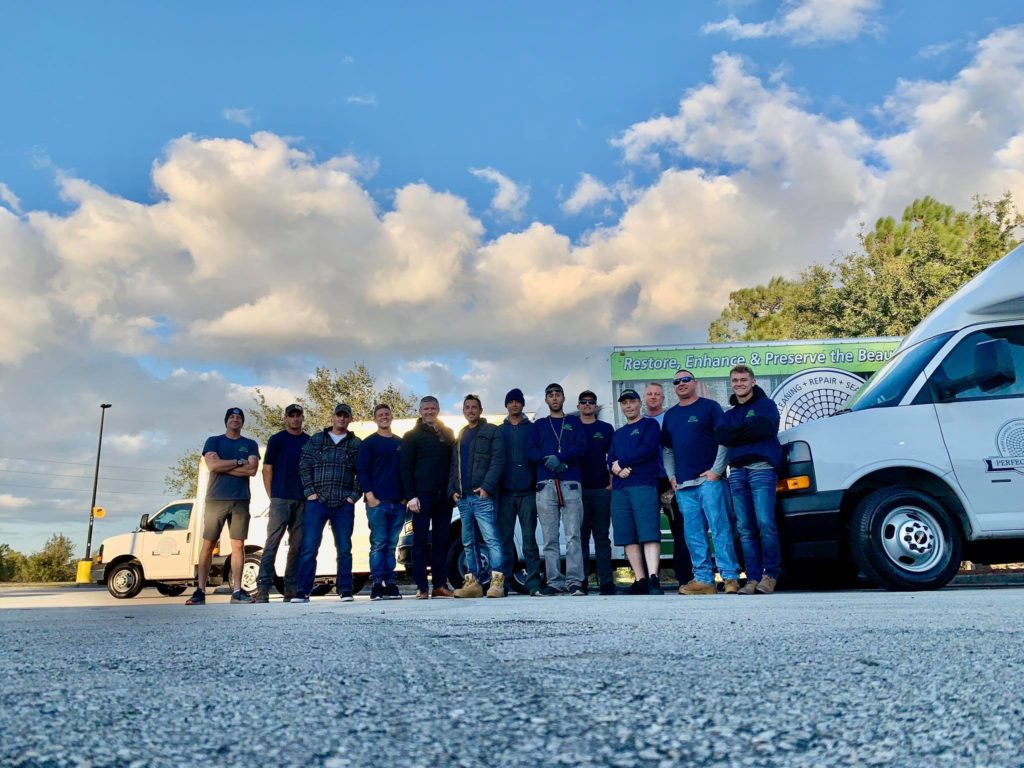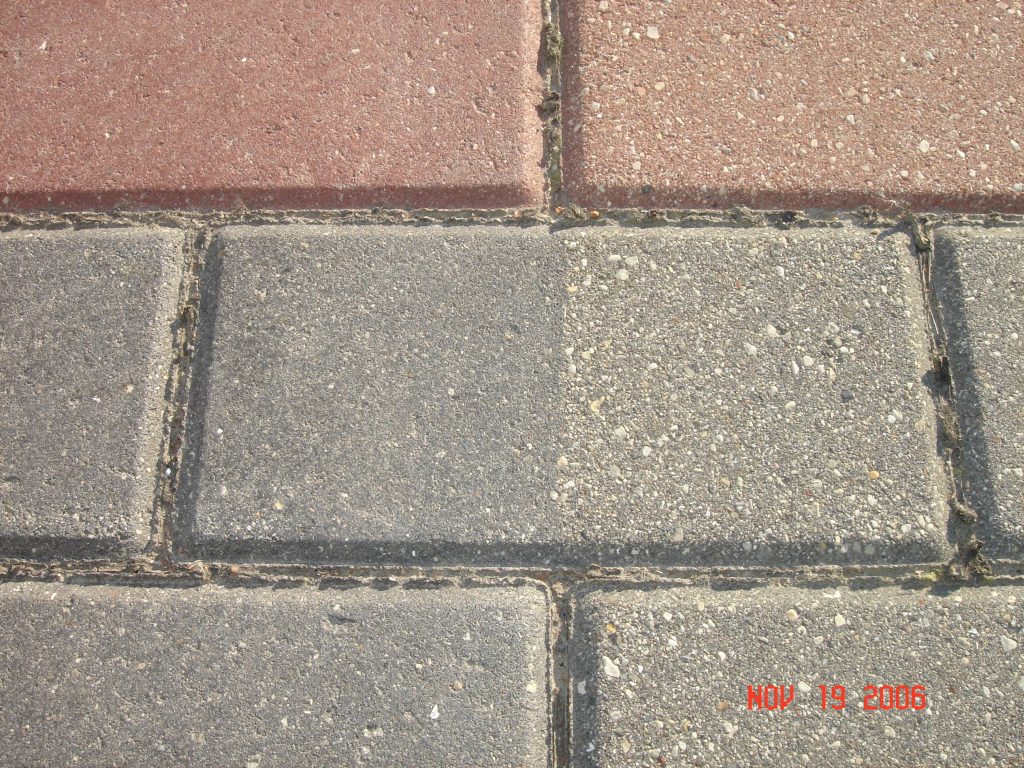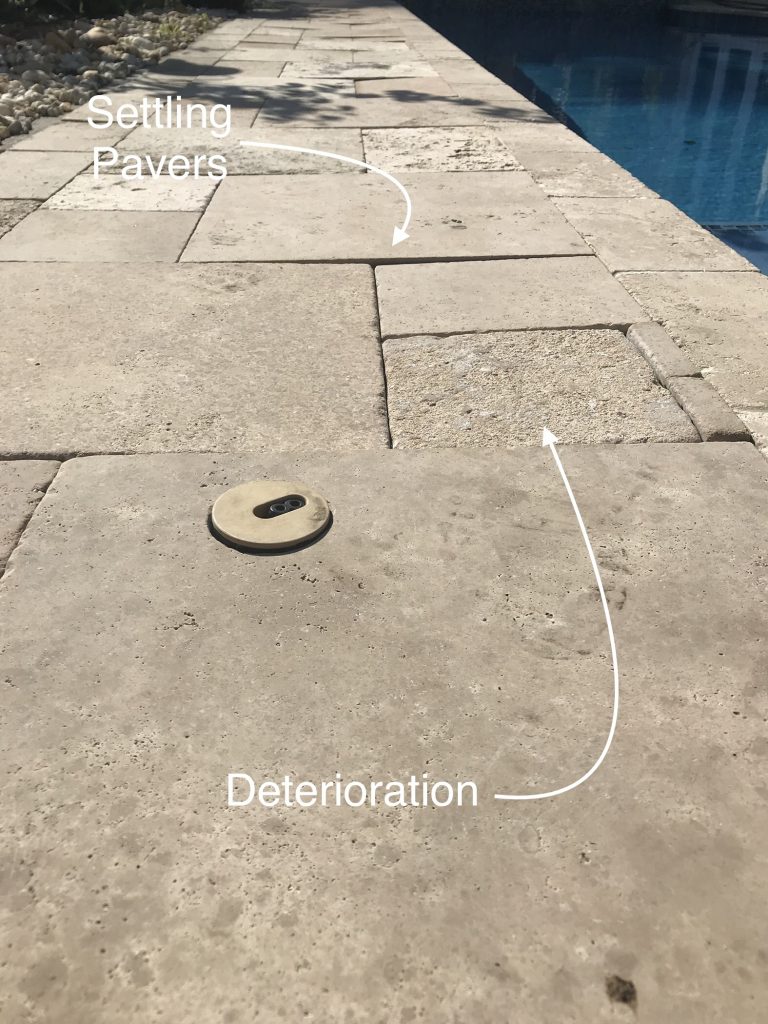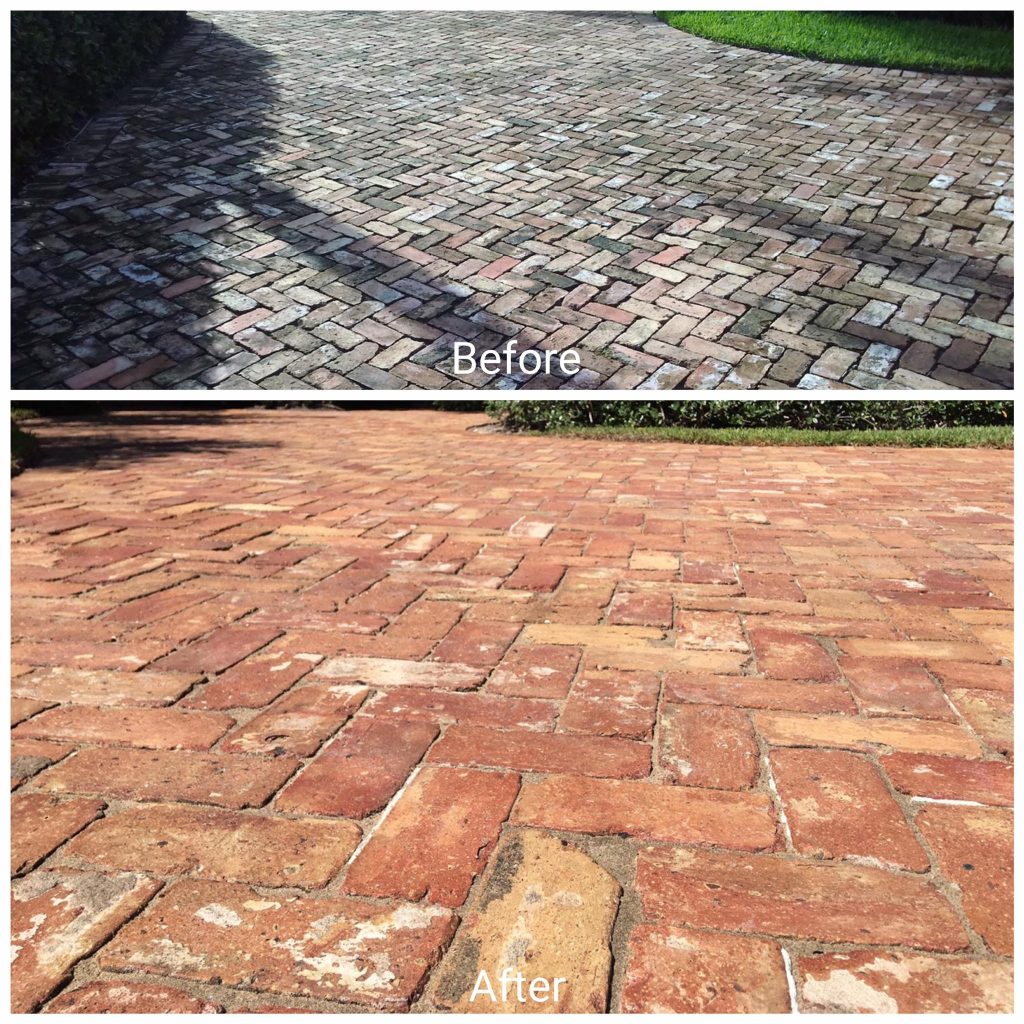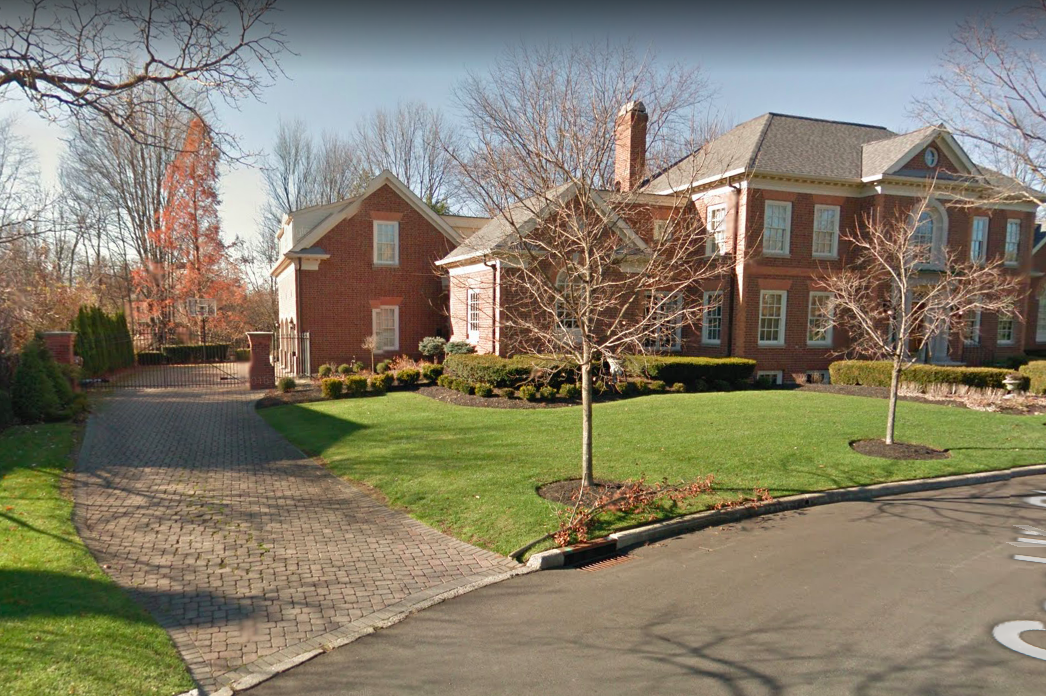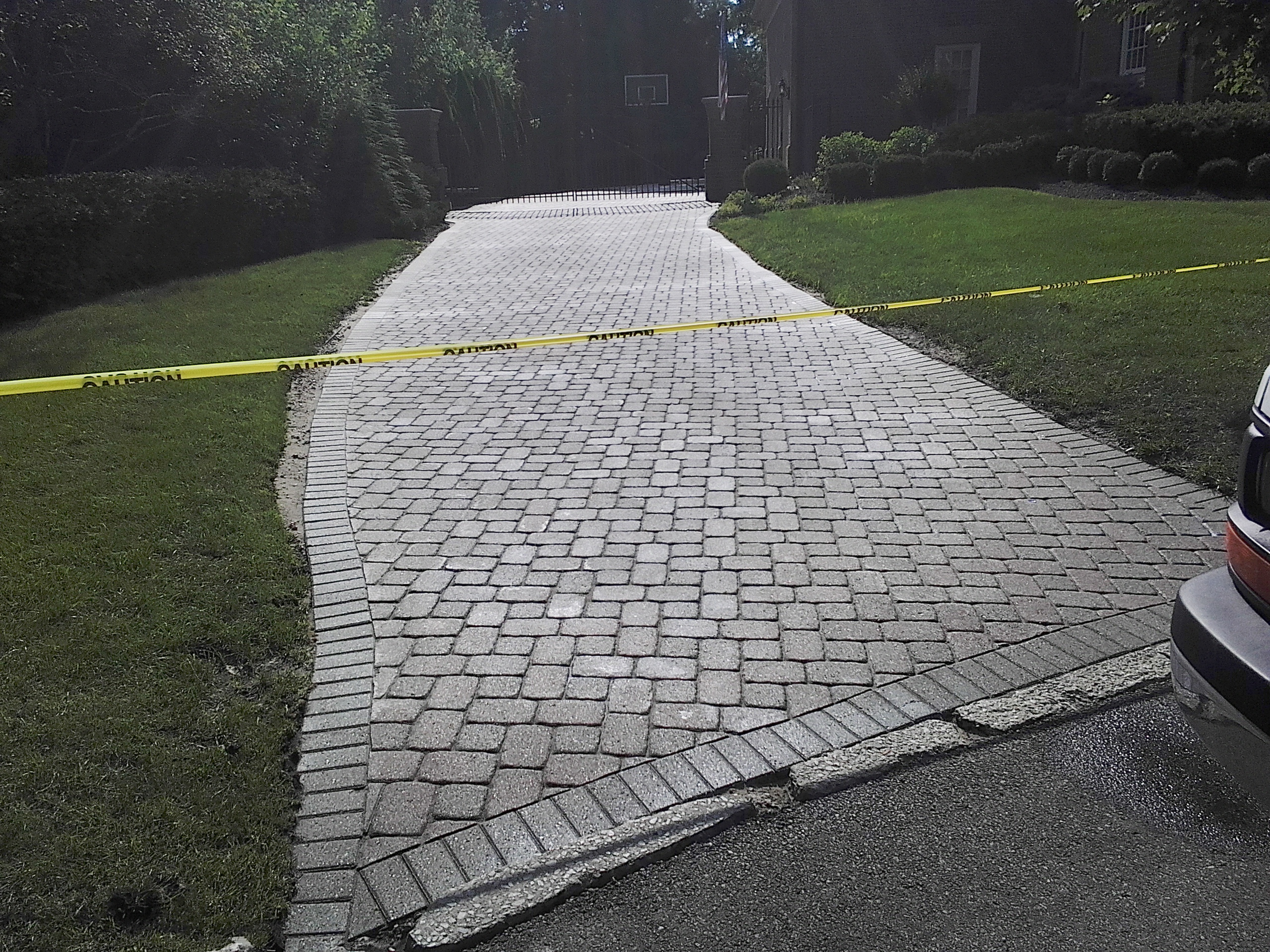Unfortunately, it’s very common to drive through just about any neighborhood in South Florida and see tons of paver driveways that have been sealed incorrectly. Even an untrained eye can tell its incorrect typically due to the white haze cast over top of the pavers. The paver sealing business is one of the easiest business to start so we constantly see new start up businesses jumping into the market claiming to be an expert at paver sealing. These are usually painters, pressure washing contractors, handymen, etc. They’ve heard that you can get $1.25 or more per sq ft sealing pavers and they’re going to get rich by offering paver sealing services as well.
They receive their first call, and you’re the victim. They meet with you and they seem nice. They are nice. They are just people like you and me trying to make a dollar and grow our business. Typically, they aren’t out to cause you harm or do a bad job. I think most of them actually want to do the best job. The problem is, its what they don’t know that eventually causes the harm. They give you a price of $800 for your 2,000 square foot driveway. That’s $.40 per square foot. What a deal, you think to yourself. With the money you’ve saved, why not go out this evening for a fine dinner with the family to celebrate.
So you give this contractor a 50% deposit to get started. He’ll insist on the deposit because he does not have the funds to purchase the material otherwise and he has not established a commercial credit rating yet that would allow him to purchase the products from a supplier on credit. He takes the deposit and drives to the local big box hardware store and walks straight to the paint section to pick out the sealer that he’s going to use. There’s one that’s $250 per 5 gallons and one that’s $99.99 per 5 gallon bucket. Which one do you think he picks?
Let’s hold that thought and do a little math. The most common sealer brands that we see applied are Seal N Lock or Cobble Loc. WE DO NOT USE EITHER OF THESE PRODUCTS.
Seal N Lock: As you’ll see here, the cost of a 5 gallon bucket of this sealer is $295.
Coverage Rate: They are saying you get 200 square feet per gallon or 1,000 square feet per 5 gallons.
First Problem: This type of sealer is called a joint stabilizing sealer. This means that the sealer is designed to soak down in to the sand between the pavers and when it dries, it turns the sand hard. There’s no way possible to apply this product at 200 square feet per gallon and have the sealer soak down in to the joint enough to properly harden it more than about 1/4″-3/8″. This means that if you’re applying this sealer at the recommended coverage rate, its only going to harden the top 1/4″-3/8″ leaving the remaining 2″ of sand soft in the joint. In order to adequately stabilize the sand joint with a water based sealer we recommend using a maximum of 100 sq ft per gallon for joints up to 1/8″ wide and a maximum of 70 sq ft per gallon for joints up to 1/4″ wide.
Why would this manufacturer give an incorrect coverage rate? Simple, they want their product to be the cheapest per square foot making contractors more profitable and more likely to use their products.
Second Problem (His Problem Becomes Your Problem): Ok, back to doing the math. Let’s just say for discussion purposes that you’re hiring this contractor to clean and seal your 2,000 square foot driveway and he’s charging you $800. So, we know that based on the “recommended coverage rate” of the manufacturer of 200 square feet per gallon, he will need 10 gallons. Again, we’re saying there’s no way possible you’re getting proper penetration of the joints at 200 sq ft per gallon. So, the cost of 5 gallons is $295 and they’re saying it will cover 1,000 square feet. So based on this, your contractor will need to spend $600 + tax for the sealer alone. Since he charged you $800, he has less than $200 left over to pay for his time, his equipment, his truck, his insurance, his workers compensation, his taxes, etc, etc, etc.
He starts doing the math himself and realizes, he’s not going to make any money on the job. When he gets the product, he realizes he’s in control of mixing the product. You see, these types of sealers give you part A and part B and you mix those together with water. If you want to increase your coverage rate, simply add more water. This means more profit for the contractor and lower quality for you. So he does your job and doubles the recommended amount of water, and he gets away with it. It looks fine for a couple months. So he keeps doing it on every job. If its a big job and he really wants it, he just adds more water so that he can get the cost down even lower.
Keep in mind, we’re saying at a minimum, if you’re trying to stabilize the sand joints, which is the secondary purpose of this joint stabilizing sealer, he should be applying it at 100 sq ft per gallon. So, now lets do the math based on the coverage rate that he should be using.
2,000 square feet / 100 square feet per gallon = 20 gallons of sealer. AKA (4) 5 gallon buckets x $295 (the cost of the sealer per 5 gal bucket) = $1,180.00 and he only charged you $800. Hmmmm. He’s either A. not going to be in business long because he’s loosing money, B. He’s diluting the sealer with way too much water or B. He’s not applying the sealer at the recommended coverage rate.
I say this every day. “There’s a race in Florida to make the cheapest paver sealer and then there’s a race to be the cheapest applicator/contractor that applies it. These are two races we’ll never participate in”.
The types of sealers above are water based sealers. Water is the ingredient or vehicle that takes the “plastic” in the sealer down in to the paver. The water evaporates or drains out leaving the plastic to protect the paver. The more water, the less plastic. In Florida, we strongly recommend using a water based sealer. However, just because you’re using a water based sealer, doesn’t mean it’s good. Water is not the key ingredient in water based sealers. It’s the type of “plastic”, the % of water, other ingredients that prevent stains and block UV rays from the sun that make one water based sealer better than the next. The best water based sealers are acrylic water based sealers.
The other types of sealers we see used in Florida are called solvent based. When these types of sealers go bad, its a nightmare. We see these used a lot by painters and handymen because they’re rolled on. The problem with these solvent based sealers is that they almost always, eventually turn a milky white over time requiring them to be stripped off. They are typically slippery. They show roller marks. And they are very high VOC (not environmentally friendly). If your contractor wants to use a solvent based sealer on your pavers, RUN. These sealers are thick and lay on top of the pavers. They prevent any moisture and water from penetrating the surface. Consequently, they also prevent water or moisture from escaping from the ground. Florida has a high water table level and this water and moisture is constantly trying to escape up through the surface. When the water tries to evaporate up through the paver, it gets trapped by the sealer. Over time, this process develops a hydraulic pressure that eventually breaks the bond that the sealer has with the paver. We call this delaminating. When the sealer delaminates, a void is created that fills up with moisture. The moisture and trapped air gives a white appearance to the sealer. When this happens, the sealer must be either chemically stripped or sand blasted off the surface. Both of these are very costly.
Bottom line, like with most things in life, but especially with paver sealing, YOU GET WHAT YOU PAY FOR. I feel that we’ve done a great job of offering a superior value, we’ve just not figured out how to be the cheapest. And we never will so long as people continue to hire the types of contractors I explained above. I broke down our business in to 4 categories: Our Materials, Our People, Our Equipment and Our Customer Service. I set out to offer the best in each of these categories so that I could offer the best to you, our customer. Each of these 4 categories come with a price. We add those costs up, and that determines how much we charge you. Decrease the quality or eliminate one or more of these categories and the price goes down. Which ones are you willing to give up? But that doesn’t fit our business model. We’ve found that there are enough quality minded people who are willing to pay a little more for peace of mind, and those people hire us. Potential customers tell me all the time, “these types of contractors wouldn’t be in business if they were doing what you say”. The reality is, many people will take huge risks to save money. If they hear cheap, that don’t hear anything else. Some people hear cheap and they run away; others run towards.
If you’re wanting a great value at a fair cost, we’re the best choice. Just keep in mind that how fair the price is, is relative to how great the value. Give us a call at (561) 614-1277 or (772) 249-3460 or complete the estimate form on our website.
We service all of Miami-Dade, Lee, Collier, Charlotte, Sarasota, Broward, Palm Beach, St Lucie and Martin Counties. For larger projects and commercial projects, we service all of Florida.
Miami, Palm Beach Gardens, Port St Lucie, Palm City, Jupiter, Hobe Sound, West Palm Beach, Wellington, Vero Beach, Boynton Beach, Delray Beach, Boca Raton, Lake Worth, Palm Beach, Naples, Ft Myers, Venice, Sarasota and everywhere near by and in between.
Thank you for reading – Mark Rhodus | President
